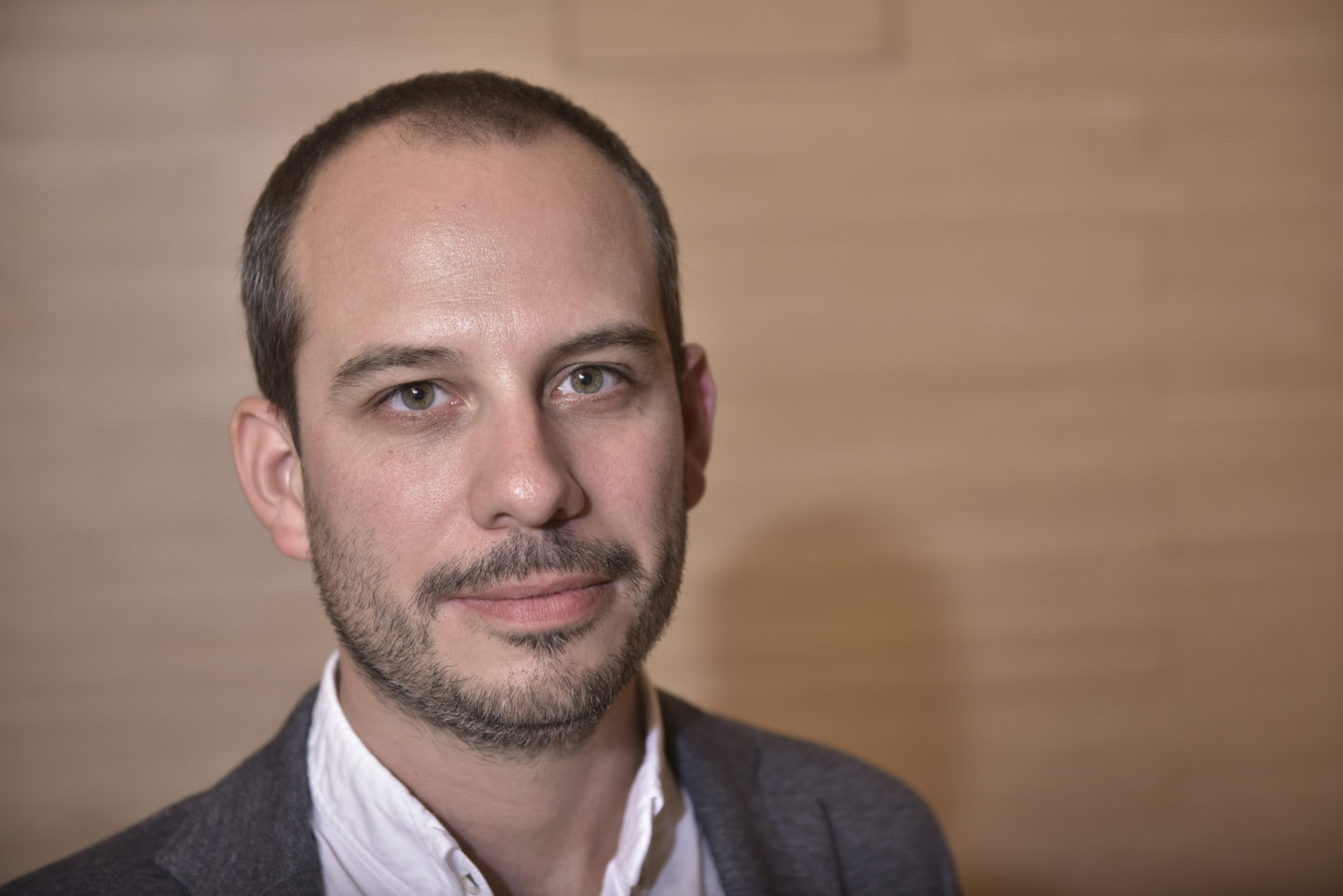VICENT BOTELLA-SOLER

WHERE?
- INNOVATION AND MACHINE LEARNING MANAGER, FORWARDKEYS, SPAIN
AREA OF WORK
- DATA SCIENCE
- MACHINE LEARNING
AT IST AUSTRIA
- POSTDOC (2016)
- TKAČIK GROUP
Vicent Botella-Soler was a Postdoc at IST Austria. He now works for ForwardKeys in Spain. ForwardKeys analyses global travel movements to help companies improve their tactical decision making. At IST Austria Vicent Botella-Soler was a Postdoc in Gašper Tkačik’s group.
In an interview with Daniela Klammer and Kathrin Pauser which took place during the Science and Industry Day 2017 he answered some interesting questions about his work.
WHAT’S WRITTEN ON YOUR BUSINESS CARD?
Vicent Botella-Soler, Innovation and Machine Learning Manager at ForwardKeys
WHAT’S THE ESSENCE OF YOUR JOB?
At ForwardKeys we analyze large datasets from the travel industry to provide forecasts and insights to our clients. We maintain a daily-updated database of all the flight bookings worldwide. The analysis of this large amount of data allows us to answer interesting questions in industry sectors such as retail, hospitality, tourism management or financial services.
WHAT ARE THE LIMITATIONS OF YOUR JOB AND WHAT ARE THE UPSIDES, THE COOL THINGS?
It is very nice to have a sort of magnifying glass above the planet and watch, almost in real-time, how people move around and how different events and contexts affect the flow.
Limitations are all the typical limitations intrinsic to working with data…there are plenty of them, but these are the daily challenges you’ve got to get used to.
WHERE DO YOU SEE YOURSELF IN THE FUTURE?
I see myself working on this kind of quantitative, analytic, data-driven problems. Also, I’ll make sure that I keep learning new skills and new techniques—that is what I find most exciting.
WHAT IS YOUR ACADEMIC BACKGROUND?
I studied theoretical physics and did a master in astrophysics. For my PhD I moved to dynamical systems and neuroscience. Here at IST Austria I worked in computational science, applying machine learning techniques to the problem of decoding visual stimuli from the spiking response of the retinal neurons.
WHAT ROLE DID IST AUSTRIA PLAY FOR YOUR CAREER?
Both through my work and by meeting and being in touch with very good scientists, I think I gained the skills and the confidence to be where I am now.
GIVE 3 PIECES OF ADVICE TO CURRENT IST MEMBERS
First and foremost, don’t put all your eggs in one basket. Make sure you give yourself plenty of possibilities and allow enough flexibility when you confront your future.
Always look around, talk to people in different fields and in industry, and also in different career paths. This way you can get a good idea of the context in which your career moves.
Also, it is very important that you trust your skills. Trust that the knowledge and habits that you have gained in science are valuable beyond the walls of academia.
WHAT IS YOUR FAVORITE MEMORY OF IST AUSTRIA?
When I came to IST it was still fairly small. It was very nice to go around campus during the first weeks and find that everybody just introduced themselves to you. It was easy to identify the newcomers and make them feel welcome.
And of course I met my wife here and my two kids where born while I was working at IST, so I keep many fond memories attached to the Institute.
WHAT WAS A MAJOR FACTOR IN DETERMINING YOUR POST-IST CAREER MOVE?
It was mostly a family choice. We wanted to have a say in where we lived. So we chose where we wanted to live, and then our careers had to adapt to our decision.


